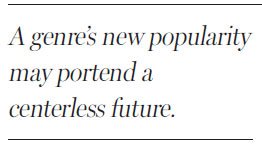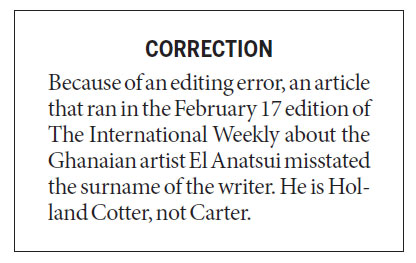Is this hip-hop genuine?
Updated: 2013-03-03 08:05
(The New York Times)
|
|||||||
|
"Thrift Shop," a song that Macklemore collaborated on, is topping the U.S. charts. The audience is hip-hop-aware but not hip-hop-exclusive. Barry Brecheisen / Invision, via Invision for Park City Live |

Even though hip-hop has countless shades, colors and internal dissenters, it's still often spoken about as if it were an undifferentiated mass. Many consider it an outsider phenomenon, even though hip-hop has effectively become the center of pop music. This attitude stems mainly from a refusal to see the world as it has become.
This narrow understanding of hip-hop is even more surprising because part of the genre's brilliance is how it's moved away from the margins and seeped into the mainstream in unexpected places and ways - providing soundtracks for ads, promoting brands, giving teenagers new slang words. Like oxygen, it belongs to everyone.
And then, inevitably, the adopters and interlopers begin to succeed on their own terms, which leads to phenomena like Macklemore & Ryan Lewis's "Thrift Shop" and Baauer's "Harlem Shake." For several weeks in February "Thrift Shop" was the number one song in the United States, and since the beginning of February "Harlem Shake" has been the soundtrack for the latest viral dance-video craze. Both songs have been hovering near the top of the iTunes sales chart.
This reflects a tremendous cultural victory for hip-hop, or possibly the moment when hip-hop begins to lose meaning. What it really portends is hip-hop's centerless future, in which its elements and references will be widely up for grabs - even more so than they are now - and used in unanticipated ways, inevitably weakening the center.

Undoubtedly, "Thrift Shop," which also features the singer Wanz, is a hip-hop song, though one that bears almost no connection to hip-hop as a living genre. It's a lighthearted song about the thrills of buying second-hand clothes, though it's not quite the robust sendup of hip-hop-extravagance cliches that it aspires to be. (If white rappers pilfering the exuberant moods of late-1980s/early-1990s party rap is your thing, you'd do better with Mac Miller's "Party on Fifth Ave." from 2011.)
As a rapper, Macklemore recalls most vividly the progressive independent hip-hop of the early 2000s. That was when hip-hop was still filling out its margins, and a white underground was exploring new thematic territory.
The success of that scene also helped generate an audience for hip-hop that did not seek out or understand the genre from the inside out but rather from the other way. Macklemore may be a rapper - last year, prophetically, he was one of the 10 young rappers on the cover of XXL magazine's annual "Freshman Class" issue - but his audience is something else.
Macklemore's success is a reminder that in 2013 it is possible to consume hip-hop while remaining far removed from black culture altogether. That's not only because Macklemore is white or because his audience is mainstream. It's because on "Thrift Shop" the rapping is merely a tool to advance ideas that are not connected to hip-hop to an audience that doesn't mind receiving them under a veneer of hip-hop cool.
This audience - hip-hop-aware but not hip-hop-exclusive - is huge, and its needs are being filled in several ways.
You can see the audience in action, literally, in the recent "Harlem Shake" dance videos, with tens of thousands of versions posted to YouTube featuring groups of people dancing, poorly, to the song's opening segment.
Baauer's "Harlem Shake" isn't a hip-hop song, but it is hip-hop-influenced. Baauer is at the forefront of trap, the lately emergent type of dance music that takes its inspiration, and some of its samples, from the aggressive Southern hip-hop of the last few years.
The Harlem Shake is a real dance, though. The dance in the video, to the extent that it's a dance at all, isn't the actual Harlem Shake, which has been an uptown staple for more than a decade. The explosion of this song, and its accompanying videos, threatens to all but obliterate the original dance's claim on the name.
The New York Times

(China Daily 03/03/2013 page12)
